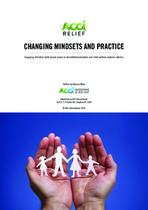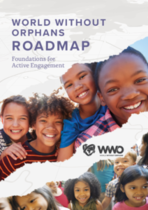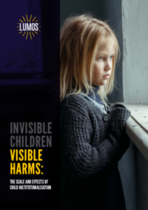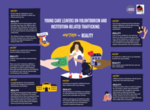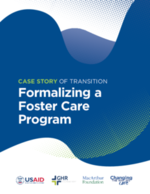Changing Mindsets and Practice: Engaging Christian Faith Based Actors in Deinstitutionalisation and Child Welfare Systems Reforms
This tool was designed to help those seeking to assist Christian faith-based actors involved in long-term residential care programs make the transition from institutional to non-institutional (family and community-based) child welfare programs. It was written to give some insight into what this journey called ‘deinstitutionalisation’ might look like and what steps and processes might be involved. Whilst it contains a brief overview of the technical stages, its main purpose is to guide you through the process of achieving buy-in and is not intended to be a technical deinstitutionalisation manual.

